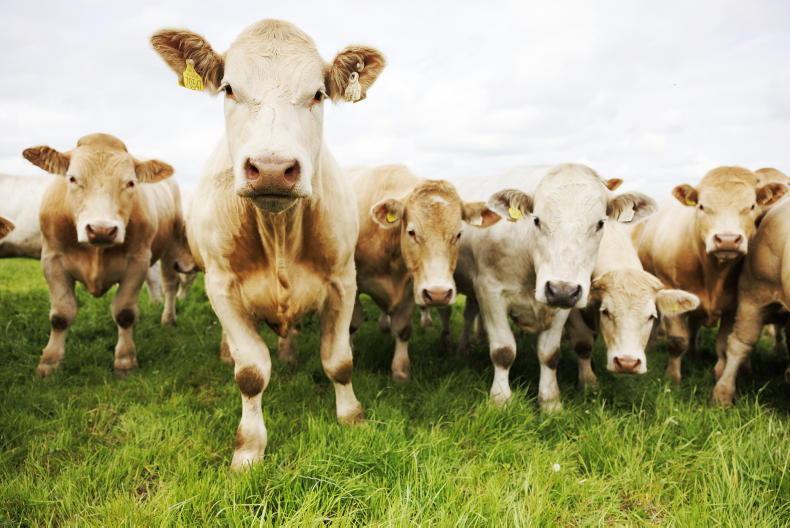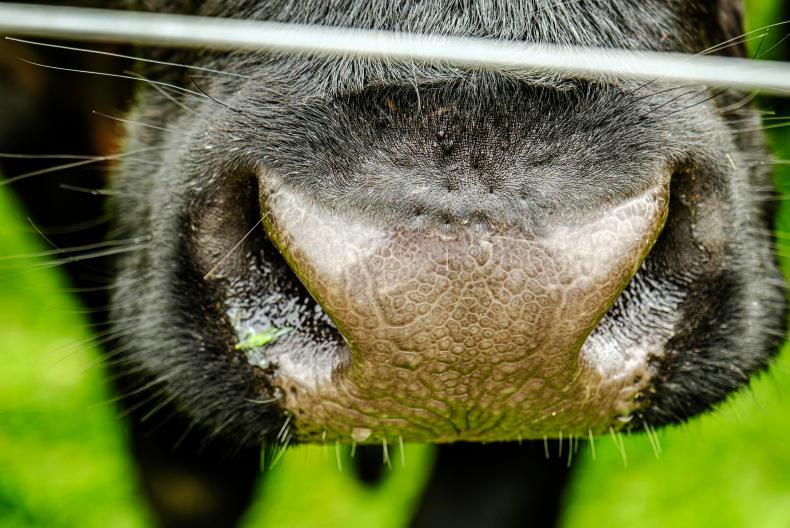It is three weeks since the UK Climate Change Committee (CCC) published their advice on how NI can meet the net zero greenhouse gas (GHG) target set out in the NI Climate Change Act 2022.
As well as a rapid transition for society away from fossil fuel, the CCC suggests that we will have to cut cattle and sheep numbers by around half, and invest heavily in technology to capture carbon from the air.
In the CCC’s own words these actions go “significantly beyond” what it originally advised Stormont to do.
Since that report was published, a number of people have correctly pointed out that the CCC make recommendations, and it is up to Ministers and civil servants to set policy.
But the CCC is a statutory body made up of top climate scientists - it is not advice NI can simply ignore. For as long as the NI target remains in place, the direction of travel points our policymakers towards rapid increases in tree planting at the expense of grazing livestock.
But ultimately this all comes down to money, and any economic impact assessment of the NI Climate Change Act will show a net zero target is undeliverable here. As well as incentives necessary to get farmers to change, there is the cost of infrastructure required to capture carbon in NI.
The reality is that the UK (and other developed countries) will rely heavily on carbon capture to get to net zero. This carbon is then stored permanently at suitable locations such as disused oil and gas sites in the North Sea.
Some countries have projects in place, but it remains untried technology in the UK. It will cost billions to implement, and it makes no financial sense to site it in NI.
When Stormont returns, MLAs must amend the NI Climate Change Act to get it into line with original CCC advice. If they don’t, wider society will just ignore their net zero target as impossible to achieve.
Read more
Climate law taking NI Ag back 50 years
CCC report leaves farmers on a ‘knife-edge’, says Brown
It is three weeks since the UK Climate Change Committee (CCC) published their advice on how NI can meet the net zero greenhouse gas (GHG) target set out in the NI Climate Change Act 2022.
As well as a rapid transition for society away from fossil fuel, the CCC suggests that we will have to cut cattle and sheep numbers by around half, and invest heavily in technology to capture carbon from the air.
In the CCC’s own words these actions go “significantly beyond” what it originally advised Stormont to do.
Since that report was published, a number of people have correctly pointed out that the CCC make recommendations, and it is up to Ministers and civil servants to set policy.
But the CCC is a statutory body made up of top climate scientists - it is not advice NI can simply ignore. For as long as the NI target remains in place, the direction of travel points our policymakers towards rapid increases in tree planting at the expense of grazing livestock.
But ultimately this all comes down to money, and any economic impact assessment of the NI Climate Change Act will show a net zero target is undeliverable here. As well as incentives necessary to get farmers to change, there is the cost of infrastructure required to capture carbon in NI.
The reality is that the UK (and other developed countries) will rely heavily on carbon capture to get to net zero. This carbon is then stored permanently at suitable locations such as disused oil and gas sites in the North Sea.
Some countries have projects in place, but it remains untried technology in the UK. It will cost billions to implement, and it makes no financial sense to site it in NI.
When Stormont returns, MLAs must amend the NI Climate Change Act to get it into line with original CCC advice. If they don’t, wider society will just ignore their net zero target as impossible to achieve.
Read more
Climate law taking NI Ag back 50 years
CCC report leaves farmers on a ‘knife-edge’, says Brown









SHARING OPTIONS